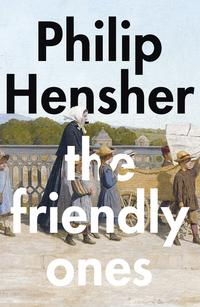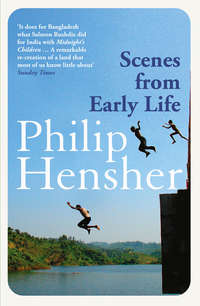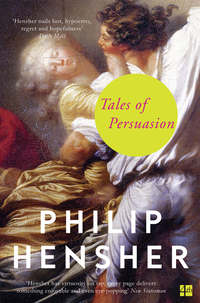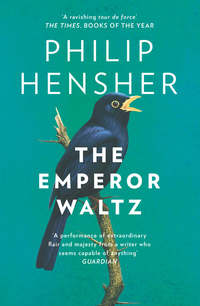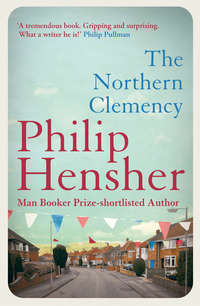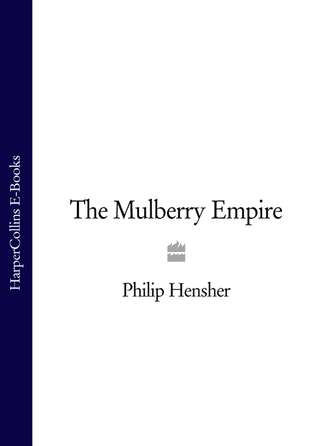
Полная версия
The Mulberry Empire
‘That won’t – no—’ Bella said, almost snatching the gloves back from Emily. ‘—no, they are my father’s gloves, not Mr Burnes’s. Give them to me – I was on the point of taking them up to him. I need to talk with my father, in any case.’
Emily was clearly doubtful. ‘I think he’s asleep presently, miss,’ she said. ‘I can take them up later with the six o’clock tray.’
Like an invalid, Colonel Garraway had a tray at set times; his six o’clock tray bore what had proved the efficacious restorative of half a pint of dry sherry and some ship’s biscuits. Bella was firm, not permitting herself to wonder what Emily and the massively multiplying dependants below stairs would be saying in half an hour about her theft of Burnes’s pale blue gloves. Bella, suddenly, simply didn’t care. ‘I’ll take them up now,’ she said, almost furiously, and, walking across the room and snatching the gloves up, almost ran up the stairs with them.
It was only when she was in her room, the door safely shut behind her, that Bella could think of what she had done, and why she had done it. She stood, holding his gloves, and it seemed to her that somewhere, deep in the house, carpets were being beaten; a great regular dull thud, making the walls vibrate and the windows ring. She listened, and it was no noise, but only her heart, the betrayer, rousing the house to her strange desire. She held the gloves to her, and the sound would not stop. The Garraways were so respectable they would never surprise anyone, never disappoint or astonish anyone with their perfect breeding. Now something had come to astonish, to overthrow, to bowl over a Garraway, and she listened to her beating heart with an emotion not far from bewilderment.
In her room, in her bureau, in the third drawer from the top, Bella kept a box of tokens. Tokens of her past life, which no one had seen, or would see. It was this she now reached for, in which she placed Burnes’s purloined gloves. A clockwork toy, twenty years old, no longer working; who, now, could say what that meant to Bella? Or a playbill, smudged with a masculine thumb, eloquent only to its collector, and to us, who observe her at this most private juncture, quite silent? A handkerchief, embroidered by hand – not very well, as if by a child, and marked with a D – we would venture so far as to guess that this belonged, once, to Bella’s mother, whose name in this house is so sadly neglected, that it is the handkerchief clutched by her mother as she died. Precious things; most precious things. It was here she placed Burnes’s gloves, not quite knowing why, but hearing some imperative voice, which she obeyed.
5.
Burnes’s book, that summer, was read everywhere. The King did not read it, true. But yet even he had granted the author an audience, had graciously accepted a copy, and had listened, nodding from time to time, while Lady Porchester took it upon herself to describe Burnes’s adventures at length to Queen Adelaide. So – since he had never been known to take down any book but the Navy Regulations – even he could, loosely, be said to have read it. All London read it. The hostesses and their daughters read it to each other in the course of their long afternoons. In the city, the busy traders took time from making money to wonder at Burnes’s daring, the odd folk he had met, whose existence had never, until that year, been remotely suspected by people whose cellars were filled with the substantial tributes of the far-flung world. Boys at Westminster read it surreptitiously, their eyes shining, and that year, half the poems written for the Prize turned out to be Afghan pastorals, in which a shepherd of the neighbourhood of Herat, longing for his lost herd of fat-tailed sheep (Pothon platykerkous oies), came upon a dusky shepherdess. Most people who read Burnes’s famous account of his famous travels saw romance in it, and were satisfied to hear of another man’s colourful adventures and miserable minor discomforts. Bella, for instance, like a thousand other very similar young ladies between the Park and the Palace, enjoyed it as she might have enjoyed a fancy-dress ball. All these young ladies wondered only at the soft, rather irresolute man who hovered so in drawing rooms, at his having carried out such a mission. The young ladies, like Bella, looked at his white freckled skin and his thin floppy hair, the lightest possible shade of ginger, and wondered.
If many of Burnes’s readers, that summer, were taken with a sense of romance, there were others who read his book and found something worth consideration; or rather, there were those who, in reading Burnes’s book, felt their own sense of romance quite distinct from that of the herd. Burnes’s book recounting his travels to Kabul and beyond ought to have been a simple fact, on which London could agree. There it was, in three volumes, rather large type – it had been written in such a great hurry, so as to meet the public curiosity, that it had altogether been touch and go whether the bookseller could make it stretch to three volumes at all. It ought to have been a simple fact, on which London could agree, like St James’s Palace, or the Strand, or the milkmaid in the Park. But they would not behave like that, these three quite slender volumes. They seemed much more like living beings, or, better, a contagion which takes different forms in each body it attaches itself to. A contagion may not be altogether a bad thing; it may, for instance, form an inoculation, preventing something far worse. And Burnes’s books spread from reader to reader. In some of its hosts, its effect was mild; a new curiosity in an unfamiliar part of the world, a burst of romantic enthusiasm. In others it induced a grand desire to change the globe. That, let it be said, was Burnes’s intention.
The Prime Minister read it, and wondered why he had never thought about the state of Kabul before; the political classes read it, and often wondered what consequences would flow from our regarding these strange and backward states as mere curiosities. Fat clergymen read it, having little else to do with their time, and badgered anyone who cared to listen on the plain Christian duty to bring the boundaries of Christendom a little wider, to extend our Indian missions westward. Few people took the opinions of clergymen entirely seriously, but they were saying, imperfectly, what their more intelligent elder brothers were starting to feel. These places were, or ought to be, our business, and if we did not acquiesce in our plain duty, there were others who would make it their business.
‘The Russians, sir, the Russians,’ the Duchesse de Neaud said to anyone who would listen – in this case, at the opera, her fervour was being directed at a young protégé of hers, a genius of political economy, a gentleman called Chapman. The old Duchesse, quite uncommonly fervid, was beating him on the breast with her fan as she made her point – an awkward backhanded manoeuvre, since he was sitting behind her in her box. ‘The Russians – mark my word, sir – are strong, and in want of an empire. No nonsense about Reform there, no worry about the abolition of slavery – nothing, sir, nothing – and Russia would march into India as soon as our backs are turned. I assure you, sir—’
‘I hardly think, ma’am, they are in a position—’ Chapman began, weakly; the Duchesse’s transformation into an observer of the movements of nations had occurred so suddenly, the terrain had abruptly altered, without warning, and the Duchesse’s interlocutors felt their way slowly, not entirely sure when they were treading on solid ground.
‘Precisely, sir, precisely my point,’ the Duchesse went on. ‘It is as in a game of cards. If you sit on what you have won, you quickly see it diminish by the depredations of others. Am I not right, sir?’
Lord Palmerston, who had been attempting to attend to the opera, now gave up with a small inner gesture of regret at the rising shriek of the Duchesse’s theorizing. He turned with a tight ready smile to agree with her. Chapman, hovering nervously at her shoulder, sank back into the depths of the red velvet box, hoping to engage the girl in pink with the vast eyes as soon as the Duchesse could be safely handed over to the guest of honour. Lord Palmerston raised a questioning eyebrow. There were few moments when no one was trying to speak to him, and he cultivated the appearance of a melomane, in part, to allow himself a moment free from the rival demands of the town. The Duchesse was in full spate.
‘… most interesting – most interesting young man – remarkable book …’ she was saying, before spooling back wildly to the outset of her conversation. ‘You see, sir, it simply is no good to stay as we are, to be satisfied with our Indian possessions as they are.’
‘I promise you, Duchesse—’ Palmerston began.
‘What if other hands than ours were to be tempted – yes, tempted, I said, yes, I agree, very fine form, never purer in her top register – tempted by the idea of these virgin lands?’
‘India, madam?’ Lord Palmerston had no idea how he was allowing himself to be drawn into such a conversation.
‘No, sir, the kingdoms of Kabul and Bokhara and – and – if you look at Mr Burnes’s maps, it becomes perfectly apparent that there are others who have as clear an interest in it as we—’
‘That interest being none, I suppose, Duchesse, eh?’ the old Duc called from the back of the box.
‘No, monsieur, no, no – I mean Russia, Lord Palmerston.’
‘Russia, madam?’ Lord Palmerston said, hoping by a display of incredulity to bring an end to a conversation he was being subjected to at all hours of the day and night by the most improbable people. The Duchesse, however, was not so easily cowed.
‘And once Russia has established itself in Bokhara, moving on from its Crimean possessions—’
‘Madam, I hardly think—’
‘Crimean possessions – very true, very possible, not at all – imagine, sir, a Russian empire stretching to Kabul – do you suppose for one instant that they would be satisfied with that? No, sir, it would be onward to the kingdom of the Sikhs, and then, I assure you, our Indian possessions begin to look very vulnerable indeed. I doubt we could defend them against such an onslaught.’
‘I assure you, Mme la Duchesse,’ Lord Palmerston said, now entirely giving up on the opera, ‘that these are all most remote possibilities which I am confident the Governor General would meet appropriately. But, really, madam—’
‘Not remote – not possibilities – not for one moment remote,’ the Duchesse went on, her words spilling out of her snuff-coloured silk. She clutched at ribbons in her enthusiasm. ‘Have you read Mr Burnes’s travels, sir? The most efficacious manner, I assure you, of meeting the Russian threat – yes, threat, sir – is to move at this exact moment into Kabul, to Bokhara – these vast and peaceful countries, new markets, sir, and labouring under the yoke of an oppressive superstition – sir, do you not think it our plain duty as Christians and Europeans to bring enlightenment to these benighted people and save them – rescue them – from the – the threat of a fate worse, worse, I say,’ the Duchesse’s voice rising as she lost her own thread, ‘than their own?’
Behind her, Chapman and the pink silk heiress were taking refuge behind her fan, which trembled alarmingly. Lord Palmerston gave up.
‘I think, Duchesse,’ he said wearily, ‘you make a point which I know many people will agree with.’
There was something so final in his tone that even the Duchesse had to sit back in her chair, assuring herself that she, at least, had succeeded in bringing these very important matters to the attention of somebody who would attend to the situation. She turned her attention to the opera, but the act seemed to be over now. Malibran, in a most unbecoming braided blonde wig, was bowing beneath a vast weight of flowers, behaving, at least, as if she were receiving the acclaim of a grateful multitude. The Duchesse, triumphant, prepared to rise and retell her conversation a hundred times.
6.
In the Duchesse de Neaud, the infection represented by Burnes’s book had found a fertile carrier; truly a carrier, one might say, since she passed on the main features of the contagion without proving profoundly susceptible to the virus itself. Like those wealthy invalids who complain bitterly of an influenza while all the time suffering far less than those to whom they will pass on the illness, she made a great deal of noise for a season on the subject of the central Asian principalities, and, having stirred up a great deal of pained opposition and concern, was satisfied to forget the subject and never again mention Burnes, Kabul or Bokhara with her former fervent tones.
The weather in London changed, quite abruptly. The streets dried into dust which settled like a veil over everything; fruit from the market seemed to have been stored for centuries in the dungeons of some belle au bois dormant, so thick did the dust of the streets disguise the bloom of the fruit. The Season began, all at once, to come to an end. There were a few landmarks by which the Season might be considered concluded, but it felt like a rapid collapse of business, and not a cleanly marked boundary. There was no doubt that after the Court had withdrawn, after the last Drawing-Room, after the old Duke’s Summer Ball, there was no Season but a hastily convened retreat, as every house from Park to Park resounded with the beating of carpets, the single occupation of dustsheeting furniture and the sealing-up of trunks, in so much grim-faced hurry that a stranger might have concluded that a marauding army was hammering at the gates of the city, and not merely the unimagined, unexperienced phenomenon of an August in London. But at a certain moment in the year, it was clear that the Season had lost what purpose it had. Perhaps – Bella thought – it ended as soon as an acquaintance remarked, however casually, that he was leaving town early this year. The next day, in fact. The thought presented itself with an attendant melancholy which was quite unfamiliar to her. Never before had the simple fact of having to leave London struck her as so sad a loss, so devastating a revelation of what she must always have known, that the round of parties and Park and dinner was, in truth, at best wearisome and at worst a stale and unprofitable waste of existence. It made no sense to her, to feel like this, and yet that was how she felt. She could only understand it by thinking that, after the last steamy night at the opera, after the last agonizing Drawing-Room, some wardrobe-faced courtier prodding you in the back and your ostrich feathers shedding by the minute, there would be no more Burnes. She understood that very well. He was this year’s novelty, and next year there would be another.
The idea of a different state presented itself to her; the idea of an August where Bella and Burnes together could walk the empty London streets, their happiness observed only by costermongers.
For Bella, now, in this year of Grace, the idea of her departure from London with so much unsaid – even granted that she did not know what she would say, even if she could say it – brought to mind images of collapse. Soft yielding sand, collapsing inwards in an hourglass; a bathful of water sliding unstoppably into the drains; Bella alone, in the drawing room at Hanover Square, hearing only the clink and knock of the opium tantalus in the sounding empty house, waiting for departure, and nothing else.
In these last days, there was so much to be done, and the preparations for the months in Gloucestershire were as detailed and solid as for a siege. Gloucestershire was all very well, but there was much which could not be acquired there at any price. For the long siege of dullness, dictated by the fashion which would separate Bella so irresistibly from Burnes, food was needed. The current books, French novels for upstairs, English for the drawing room, old Italian poetry for the library; these things would represent a brave assault on the grim boredom of a Gloucestershire afternoon. New clothes, naturally; it was astonishing how much time could be stolen from the long day by bathing and dressing, but the trick only worked if there were new bonnets, new dresses to hand. Other than that, there remained the resort of driving about the countryside, calling on families; even a country curate’s wife, however crass or absurd, would serve to alleviate the ache of ennui as swiftly as her father’s unvarying solution. Other amusements were now closed to Bella. Fishing with worms, digging for treasure in the rose garden, dropping grandpapa’s folios from the battlements into the moat with a still memorable, pleasing, deep-sounding plop! – these were things, not newly forbidden to Bella, since they had always been clandestine activities, but since she had grown up and begun to blush, some inner sense, not of decorum but of absurdity, forbade her these previously delightful entertainments. So it was that, to beguile the long August days, purchases had to be made, and Bella and Elizabeth found their last weeks in Hanover Square taken up with visits to the drapers, to the booksellers, in search of some prospective amusement.
7.
The bookseller’s shop was full, and Bella and Elizabeth had to pick their way through a forest of acquaintances, all despatched on the same desperate errand, to fetch the season’s novelties to while away the long country summer. In a street off Piccadilly, the brown little shop was enduring its busiest week of the year, and the gentleman proprietor was wringing his hands as he tried to satisfy each lady with an interesting novelty; and Bella could see, as she quietly picked over the loose-bound piles, that the task of reconciling an individual recommendation with the sort of book which, fashion dictated, all London would be raving over by November, would indeed drive anyone to wring his hands in despair. Just now, Mr Sandoe was attempting to pacify a substantial marchioness, whose bulk and wide-mouthed face made her, without reason, appear actually to be hungry for a few volumes. Bella, waiting patiently for his attention, picked up an unbound volume; a limp volume of poems about rivers, lakes, mountains, trees – she turned the pages, but no human being was there, only the poet and his trembling emotions laid out for the admiring reader like the last stages of a dissection. There was enough of that, Bella felt, in the country already, and she wanted no slim volume of tremulous awareness, silently deploring her own infallible sense of desolation when she looked at an unpeopled mountain. Bella, who always thought that the one thing the view of an empty meadow wanted to complete it was a picnic of fifteen or twenty well-dressed gentlefolk artistically arranged, set down the exquisitely self-satisfied volume with an uncharacteristic burst of dislike.
‘Miss Garraway,’ a voice broke in. ‘And Miss Elizabeth Garraway – charmed, how pleasant to meet old friends when out on an errand – so tiring, so enervating, so refreshing to meet, merely, with two such—’
‘How do you do, ma’am,’ Bella said, bobbing to the Duchesse de Neaud, who was accompanied by one of the sour-faced Gilbert girls. ‘You are, I perceive, on the same errand as we are—’ then, recollecting herself, ‘—though you, ma’am, will have the benefit of a great library to while away your days.’
The Duchesse, indeed, was going to Windsor with the Court, as she acknowledged with a profound and unspeaking nod of the head. She was a great favourite of the King, who had known her in his sisters’ nurseries for half a century, and was an intimate, she felt able to imply in conversation, of the Queen.
‘I long for the day – quite long, my dear – when I am able to spend a moment in a chair with a book at Windsor – quite impossible. HM, you know …’ (this in a confidential whisper) ‘… remarkable little body, great energy, of course – entirely unable to set down, to lose oneself – quite exhausting, although—’ the Duchesse seemed suddenly terrified, as if another pair of listening ears might retell this comparative lack of enthusiasm and cast the Duchesse from her blissful social position into the outer darkness, ‘—nothing but pleasure in the duty, you know, nothing but, so simple, so easy, so pleased with every small service. And Windsor, you know, where every prospect pleases …’
The Duchesse looked around her a trifle wildly, perhaps recalling, far too late, how the second half of the line went. The Gilbert girl took the opportunity to force a simper and bob at Bella and Elizabeth.
‘When do you leave town, ma’am?’ Bella asked.
‘Yes, indeed – Tuesday next, I believe – thank you Miss Garraway – or so I believe, quite, entirely, happily dependent on the wishes of others—’
‘I hope M. le Duc is well?’ Elizabeth asked.
‘Thank you, yes, quite well, quite mad with uncertainty, constantly requiring his trunks to be unpacked for some favourite jewel, naturally, though happy, as I say, to be – I expect, Miss Garraway, you have read this – most entertaining, most instructive—’
This, naturally, was Burnes’s book, which the Duchesse seized with both hands from a pile on the bookseller’s table. Bella had the presence of mind not to blush, and, though Miss Gilbert was smirking to a painful extent, she could assure herself that the Duchesse probably meant nothing by it. Elizabeth had wandered off, thankfully, affecting to be engaged by some other book.
‘Indeed, ma’am,’ Bella said collectedly. ‘Mr Burnes and I, you know, are quite friends.’
That did the trick, and Miss Gilbert went off to squeeze Elizabeth for gossip.
‘Most timely, his book, I must say,’ the Duchesse went on, apparently not much caring whether Bella was friends with Burnes or not. ‘Lord Palmerston – at the opera, you know – only last Wednesday – no, Thursday – most concerned, most intrigued. You see my dear, as Burnes says very truly, nature abhors a vacuum – abhors – and where we refuse to step in, others may. You mark my words—’ and a black, glittering and sombre eye now engaged Bella’s own, ‘—others may. Thank heaven for Burnes – excellent, splendid, most timely warning, Palmerston was saying so to me—’ again that tactful drop in volume, to impress Bella that it was only the significance of what the Duchesse was saying that led her to invoke Lord Palmerston, and not a desire to display her glittering connections to a crowded bookseller’s shop, ‘—he and I were talking about it – Malibran, in The Sleepwalkerine, most enchanting, ringing top notes, last Thursday – no, Wednesday – and we agreed, he and I—’ now speaking again at normal levels, ‘—that we must go to the rescue of these poor people. Helpless, quite helpless, in need, if anyone is, of our assistance – and, as I was saying—’ sotto voce, ‘—to him: if we do not, others may. The Russian Bear, my dear, the ravening hungry Russian Bear. Thank heaven for Burnes.’
The Duchesse, now finished, fixed Bella again with her gaze, and then, astonishingly, gave a great ursine growl. Bella jumped back, having no response whatever to make to this; she could hardly growl back, as if she were in the nursery with this small brown wrinkled duchess – a mental picture of the Duchesse in her infant frocks, clutching a rusk, shrunken but entirely the same, and growling, shot across Bella’s mind. Nor, in all conscience, could she respond in any way to what the Duchesse had said; she understood nothing of what she was referring to.
Elizabeth returned, and Bella felt able to escape. As they left, the Duchesse, still deep in her own thoughts, cried, ‘A word to the wise, my dear—’ and then, as Bella nodded her goodbyes, she made her astonishing bear’s growl once more. The surprising fact was that no one else in the bookseller’s shop – not even Elizabeth – seemed remotely troubled or interested by the remarkable performance. Bella stepped into the pillbox carriage waiting for them with a persistent and worrying sense that it was she, and not the extravagant old woman, who had made a spectacle of herself.
8.


